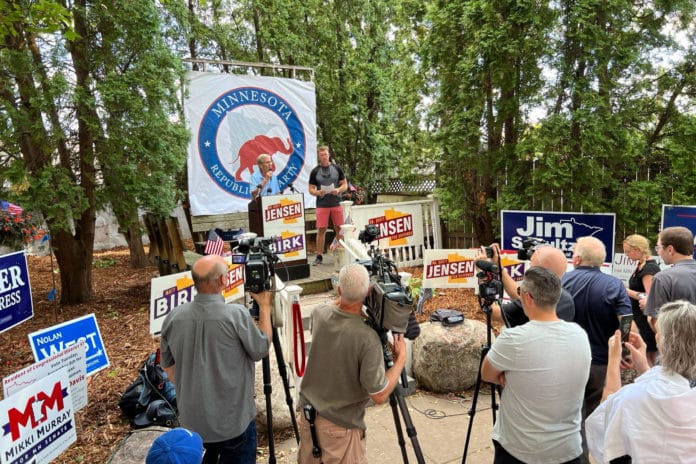
It was a devastating week for the education establishment. Across the country, headlines blasted the news: students lost decades of achievement during COVID lockdowns. Here in Minnesota, Gov. Tim Walz took heat for falsely insisting students only missed 10 days of in-person instruction due to his COVID policies.
Last week, the Department of Education released 2022 test scores for reading, math, and science. What an embarrassment for a governor who spent years as a teacher.
When broken down by race, white students fared best. On average, two of 10 students of color are proficient in math. Barely three out of 10 Native American students can read at grade level.
In what arena other than education would a leader survive with these performance outcomes?
Though roughly half of the Minnesota state budget goes to education, the governor and his ally, the teachers union, continue to insist they need more money. Taxpayers are fairly asking, “How much is enough?”
Republican gubernatorial candidate Dr. Scott Jensen is asking the same question. He continues to press the governor to have a series of debates so voters can make informed choices before early voting begins on Sept. 23.
With education a campaign priority, Jensen and running mate Matt Birk are calling for conversations with “big, bold ideas” about educational reform, including school choice. The Democrats are apoplectic, claiming they seek to gut the public schools.
With poor outcomes and social-emotional learning becoming entrenched, it’s no surprise the 2022-2023 school year will get underway with fewer students in classrooms. They’ve scattered to the wind, some opting for private and parochial schools, others staying home.
My niece is a perfect example. When her school shifted to virtual learning, Isabel found she enjoyed learning at home. As a third-grader, she was testing at the 12th grade level. Her parochial school could only offer so much enrichment.
With her mother as her teacher, Isabel is flourishing. Following a Classical Conversations curriculum, she spends three to four hours per day on her studies. On Tuesdays, she meets with peers in a co-op for socialization and group activities.
The founder of Minnesota Parents Alliance, Cristine Trooien, says there are more home-schooling families in Minnesota all the time. She’s home-schooling her kindergartener and twin second-graders. They can accomplish what they need in far less time than Isabel spends as a seventh-grader.
Home schooling is flexible and customizable. It allows students to learn at their own pace, whether they grasp concepts quickly or need more time to master them. Some families create a schedule. Others are more fluid.
Inside or outside, at home or at the grocery store, parents work with kids on socialization, communication, problem solving, budgeting, as well as fundamentals. They can “school” at home or away, teaching during some days or months and taking breaks during others.
Unlike distance learning, which is a platform for the public school curriculum, religious and secular home-schooling programs offer a plethora of content and methodology to choose from, including phonics for reading.
A wide variety of co-ops offer opportunity for socialization, though Trooien says demand is so high they’re bursting at the seams.
Much as families make financial sacrifices to send children to private schools, families may have one parent quit a job to facilitate home schooling, Trooien says. But that’s not always necessary. Since kids can learn during the day, evening, and weekends, home schooling is also an option for working parents.
“When it’s a priority, families figure out how to make it work,” Trooien says.
I’ve witnessed the success of home schooling firsthand. But I also recognize that, while it’s great for some, home schooling isn’t for everyone. Borrowing a chapter from the Jensen/Birk playbook, in the weeks to come, I’ll continue to explore other big, bold alternatives to a failing public school system.















